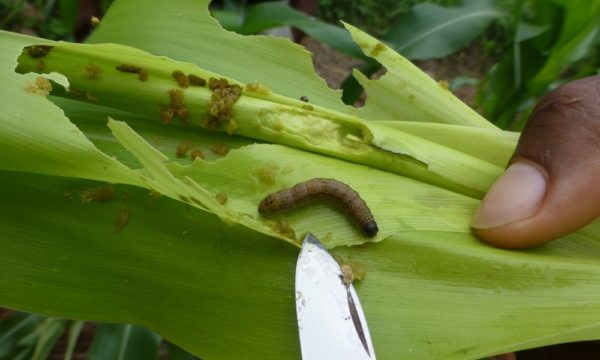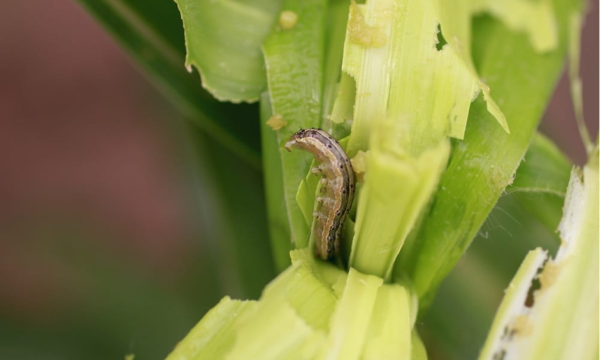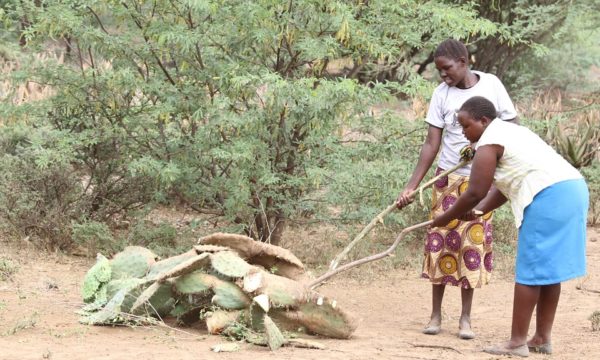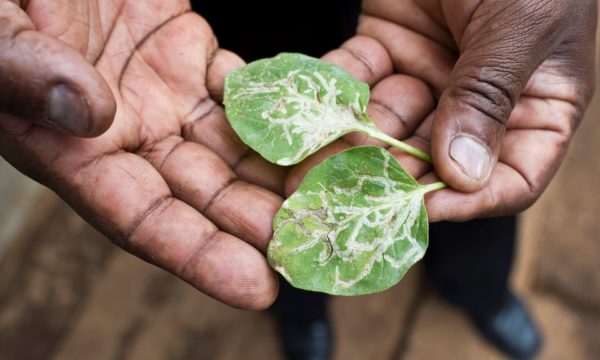
In response to the growing threat of invasive species, the Centre for Agriculture and Biosciences International (CABI) has called for urgent action to tackle the global spread of invasive species, even as the recent fall armyworm outbreak casts doubts over Africa and Asia’s preparedness to fight the scourge. CABI is a not-for-profit organisation that draws on scientific expertise to solve problems in agriculture and the environment.
The call was made at the 2018 Africa Green Revolution Forum (AGRF) in Kigali, Rwanda, by CABI’s Director General for Development, Dr Dennis Rangi. His announcement follows publication of CABI’s policy brief: Invasive Species: The hidden threat to sustainable development at AGRF and this year’s launch of CABI’s Action on Invasives programme.
The ultimate goal of the programme is to enable developing countries to prevent or detect and control invasive species in order to protect and restore agricultural and natural ecosystems, reduce crop losses, improve health, remove trade barriers and reduce degradation of natural resources, infrastructure and vulnerable areas.
“We are falling behind, and progress is currently too slow to achieve the ambitious targets set by the international community. If we do not accelerate progress on these critical issues, further outbreaks cannot be prevented,” says Dr Rangi. “We believe the international community needs a renewed commitment to implementing change and investing in measures that will help countries become better prepared to handle the impact of any new invasive species outbreak.”

Dr Dennis Rangi speaking in Kigali in the CABI-organised session – After the Fall Armyworm: Building the Resilience of Africa’s Agriculture against Invasive Species
The organisation has recommended three key areas for urgent action:
- National strategy and planning – every country must have an invasive species strategy and action plan in place by 2020 including a national priority list identifying their highest outbreak risks and targeting national efforts accordingly
- Increased investment in tackling invasive species – making this a cross-government priority and an integral component of development projects to help fund important initiatives like the need to harness big data
- Lower risk management methods – development of policy/regulation that encourages the use of lower risk management methods (biocontrol, Integrated Pest Management (IPM)
The Action on Invasives programme has already been piloted on specific species in Ghana and Pakistan, with support and funding from the UK’s Department for International Development (DFID) and the Netherlands’ Directorate-General for International Cooperation (DGIS). It is now being scaled up so that people around the world can fulfil their potential and help their countries prosper.
The fall armyworm – a moth indigenous to the Americas – has been spreading rapidly across Africa since 2016. It has also been recently found in India, giving rise to fears for the food security of millions of people across Asia.
While just 12 African countries had confirmed the presence of fall armyworm a year ago, today there are over 40 African countries infected by the pest.
It is estimated that the fall armyworm in Africa has the potential to cause maize yield losses of up to 20.6 million tonnes per annum in just 12 of Africa’s maize-producing countries. This represents nearly 53% of annual production. The value of these losses is estimated to be up to US$6.2 billion. This despite the fact that maize is the most important staple cereal crop grown by smallholders in sub-Saharan Africa and is the dominant cereal grown in most other African countries.
In Africa, fall armyworm is best known for eating maize, but the caterpillar has a voracious appetite and is known to eat 186 plant species from 42 families, including rice, sorghum and sugarcane, as well as cabbage, beet, peanut, soybean, alfalfa, onion, cotton, pasture grasses, millet, tomato, potato and cotton.
“CABI believes the Action on Invasive programme will contribute to improving people’s livelihoods and food security, as well as countries’ trade opportunities and commitment to environmental protection. This in turn will support the United Nations’ SDGs, the International Plant Protection Convention and the Convention on Biological Diversity. CABI is asking the global community to commit to reducing the impact of invasive species and we invite everyone to support the Action on Invasives programme in any way they can,” explains Dr Rangi.

The panel at AGRF 2018 included, from left: Dr Dennis Rangi (CABI), Dr May-Guri Saethre (IITA), Dr Denis Kyetere (AATF), Dr Rob Bertram (USAID), Dr Patrick Karangwa (RAB)
Read CABI’s invasives policy brief: Invasive Species: The hidden threat to sustainable development here→
1 Comment
Leave a Reply
Related News & Blogs
Expertise shared on new research which maps growth and spread of fall armyworm in Australia
CABI’s Dr Roger Day has shared his expertise on the fall armyworm (Spodoptera frugiperda) as part of a team of researchers who have sought to map the growth and spread of the devastating pest in Australia. Dr Day, Programme Executive, Action on Invasiv…
9 February 2021





[…] via CABI calls for urgent action to tackle the global spread of invasive species — The Invasives Blog […]